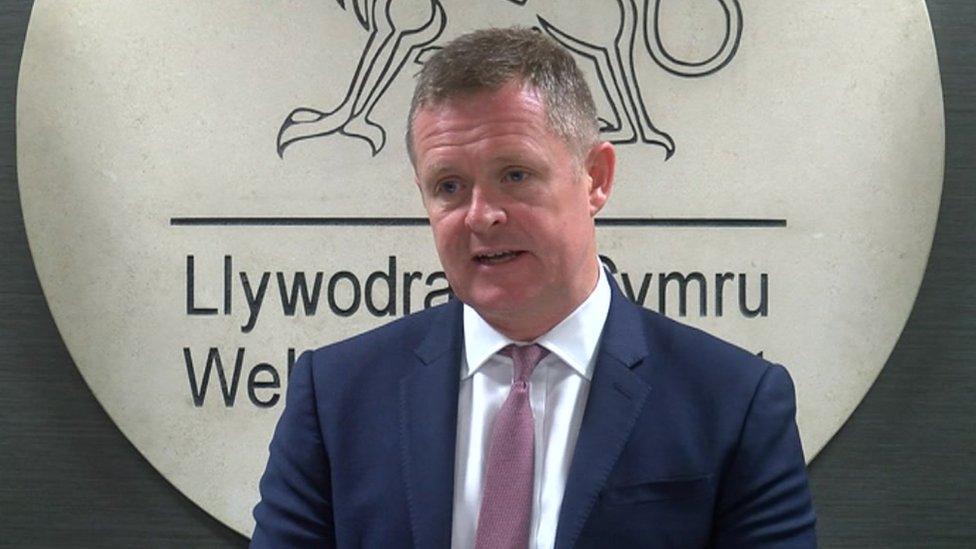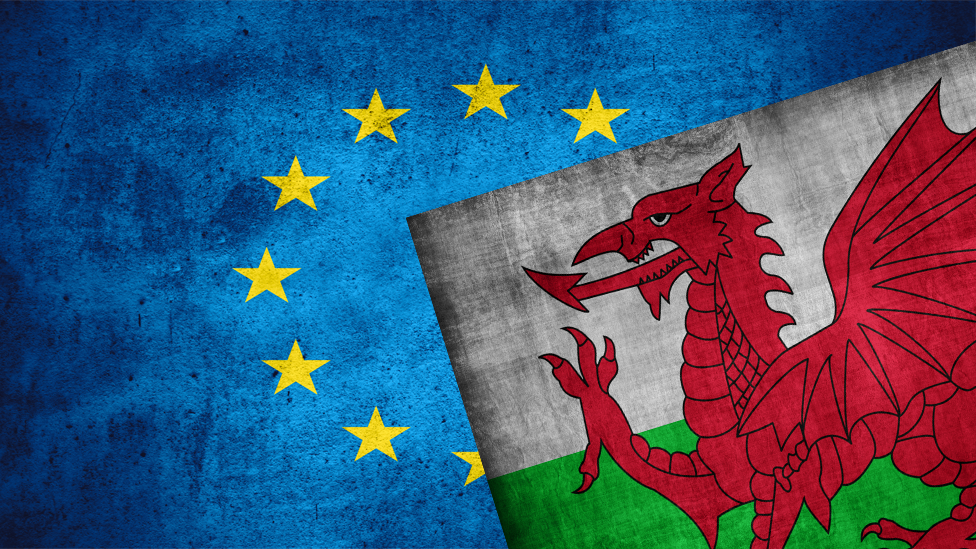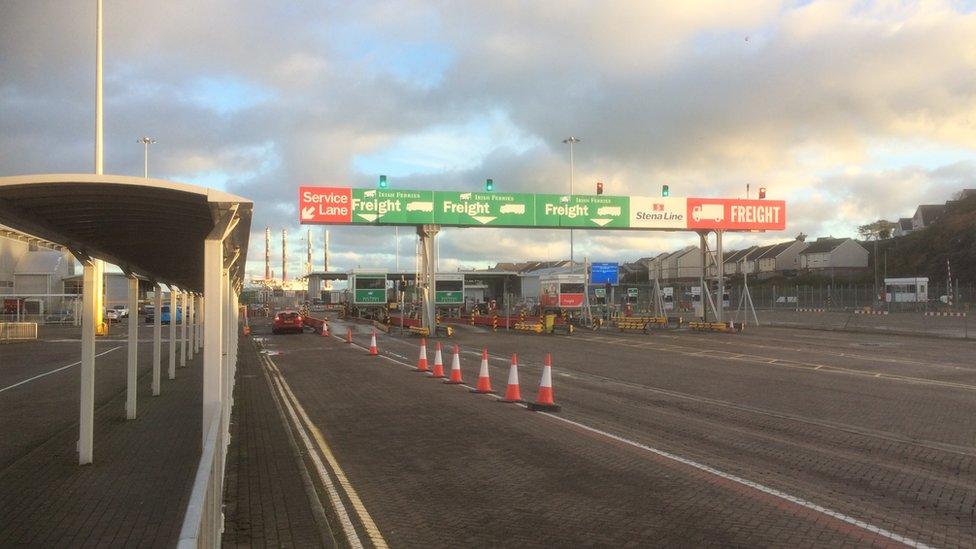Post-Brexit trade changes 'not a surprise', says Simon Hart
- Published

Simon Hart said Welsh voters were "not stupid" and had backed the Brexit changes in 2016
Changes in how the UK will trade with the EU are not a surprise and were backed by Welsh voters in 2016, the UK government's Welsh secretary has said.
On the first day of the new trading relationship, Simon Hart said businesses would be better off.
The Conservative MP said there would be challenges, but told BBC Wales they had been planned for.
His views were not shared by Welsh Labour's Jeremy Miles, who warned firms would be hit by "costly new red tape".
"That will end up being felt in our pockets," he said.
Plaid Cymru leader Adam Price said the trading agreement was going to be "very very bad for the UK economy and the Welsh economy".
A majority of Welsh voters backed leaving the European Union in the 2016 referendum.


Speaking to BBC Radio Wales's Brexit Special, Conservative minister Mr Hart said there was "unquestionably" a period where "as we make these big changes where there are going to be some challenges".
"We know that, we've been saying that, we've been planning for it, the Welsh Government have been planning for it."
Mr Hart warned against "talking down Welsh businesses, and trying to create a narrative around this that it's all hell, and everybody's going to go bust".
"People saw through that in 2016, and they'll see through it in 2021," the Welsh Secretary said.
"There are changes, that's what people voted for back in 2016, and people aren't stupid."
He added people knew what they were voting for at the referendum: "This is not all coming as some massive surprise."

Jeremy Miles said the deal would prove to be costly
'Vast amounts of paperwork'
The Labour-led Welsh Government in Cardiff had opposed Brexit at the 2016 referendum.
Mr Miles, the Welsh minister for the European transition, said the agreement was better than a "catastrophic no-deal situation", but remained damaging in the long term for the Welsh economy.
Despite Labour's criticism of the agreement it voted in the UK Parliament to back the deal.
Mr Miles denied the vote would mean it would be harder for the party to criticise any fallout.
"I think the option, facing people in Parliament was whether to support the only deal available or be in a situation where we left with no deal," he said.
"This deal of Boris Johnson's actually introduces vast amounts of pretty costly new red tape.
"That will end up being felt in our pockets in a range of different ways."
The Welsh minister said there would be "vast amounts of new paperwork, administration, checks" and "certifications".
He added: "The task really is to try and use this as a platform to build that kind of better set of arrangements into the future."

The UK had been subject to the EU's rules during much of 2020
'Terrible' for economy
Plaid Cymru leader Adam Price, whose party voted against the deal in the Commons, said all parties in the UK except Labour and the Conservatives had voted against the agreement.
"It is because this deal is actually going to be very, very bad for the UK economy and particularly the Welsh economy," Mr Price said, with manufacturing food businesses "hit hard" by "completely unnecessary" non-tariff barriers.
He said the prime minister's deal would make it "very difficult" for suppliers to manufacturing, aerospace and automotive industries.
"The only sustainable, long-term, prosperous future for Wales is as an independent country. And that's even more so the case now, because of the problems we're going to face in the short term."
He said the UK government "should have embraced" membership of the European Free Trade Association - which is part of the EU single market but outside the union itself.
Senior Welsh Brexit campaigner David Jones said 1 January marked the first day "of our complete independence from the European Union".
"We will now be a far more global trading country than we were," the Conservative MP for Clwyd West said.
Mark Reckless, a former UKIP MP who sits as an Abolish the Assembly Senedd member in the Welsh Parliament, tweeted, external: "We are no longer a star on somebody else's flag."

The trade deal is derided by some politicians and celebrated by others, broadly in line with their views on whether it was good idea for the UK to leave the EU in the first place.
But everyone agrees that it was important for the Welsh economy to have a deal that avoided extra taxes or limits on exports to the European single market, because Wales exports a higher proportion of goods to the EU than any other nation or region of the UK.
That has been achieved.
There will be more red tape though: customs processes, certificates for goods and health and safety checks will cost businesses time and money.
And the talks aren't over - as yet there's no agreement on services, also an important aspect of the Welsh economy.
That means the UK and the EU will be back to the negotiating table for round two very soon.
There's an impact on internal UK politics too - a power struggle between the Welsh and UK governments over control of things like food standards could end up in court.
The long break-up with the EU is complete, but the political arguments will continue.
- Published1 January 2021

- Published30 December 2020
